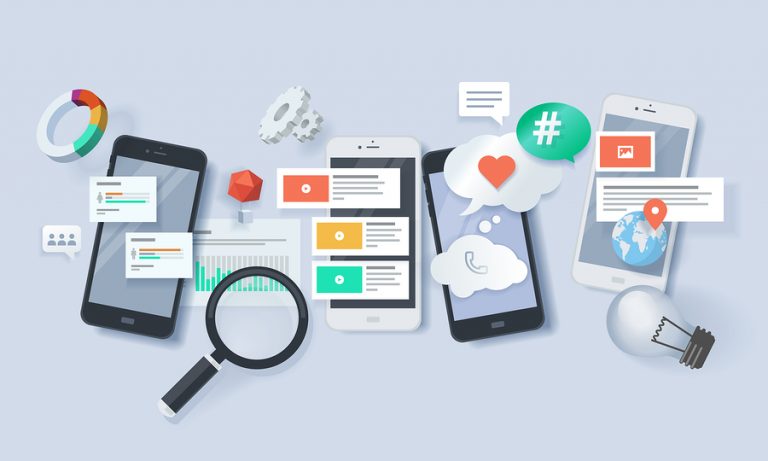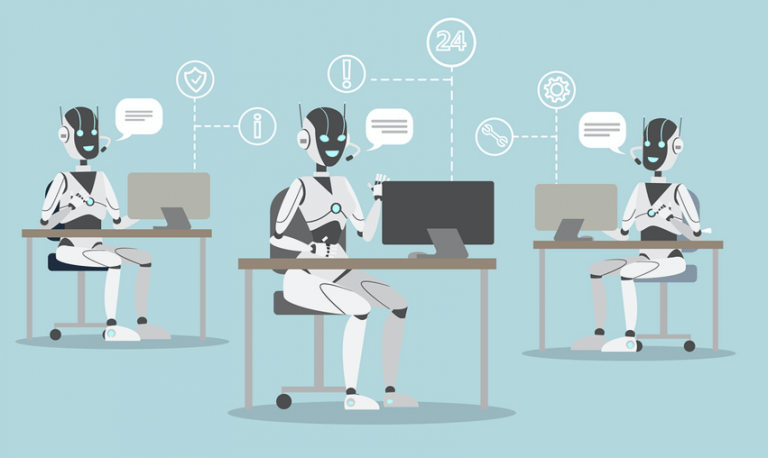AI Unleashed: Automation Trends and Breakthroughs
Hello readers! In today’s fast-evolving world, artificial intelligence and automation are transforming the way we live and work. From self-driving cars to virtual assistants, these innovations are shaping the future of society.
Artificial Intelligence and Automation are more than just buzzwords; they are a reality that is changing the world as we know it.
In this article, we will explore the latest trends and breakthroughs in Artificial Intelligence and Automation to gain a deeper understanding of their impact on various industries. Are you ready to join us on this exciting journey? Let’s get started!

Key Takeaways:
- AI and Automation are transforming the way we live and work.
- These technologies offer vast potential for increased efficiency and productivity.
- This article will explore the latest trends and breakthroughs in AI and Automation across various industries.
Understanding AI Technology
Artificial Intelligence (AI) is a branch of computer science that deals with developing intelligent machines capable of performing tasks that typically require human intelligence.
AI technology involves programming machines to simulate human intelligence, enabling them to learn from experience and improve their performance over time. At its core, AI is based on the idea of creating algorithms that can process and analyze data to extract meaningful insights.
One of the key concepts in AI technology is machine learning. Machine learning is a subset of AI that focuses on building algorithms that can learn from data and improve their performance without being explicitly programmed. Machine learning algorithms use statistical analysis techniques to identify patterns in data and make predictions based on those patterns.
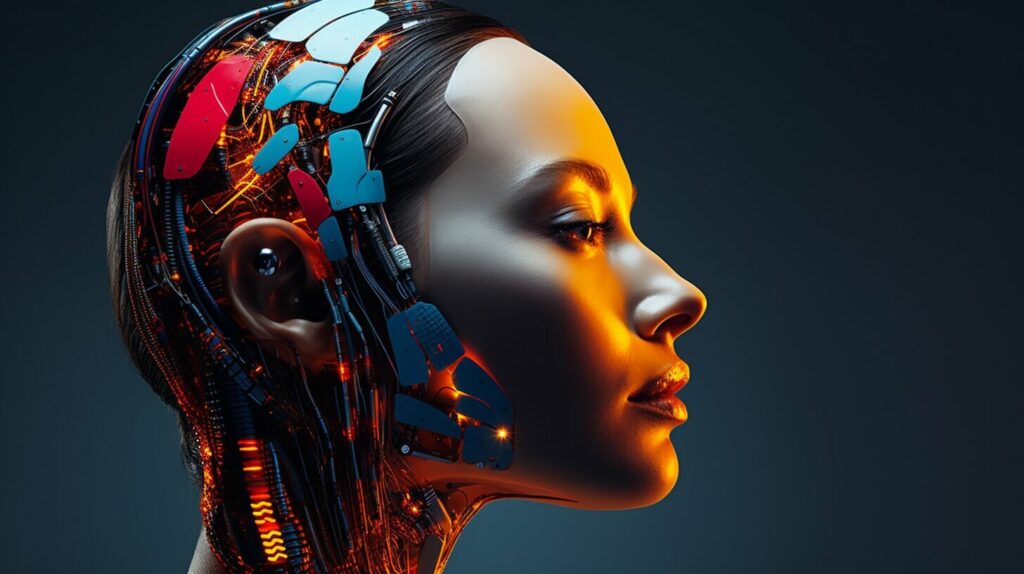
Another important aspect of AI technology is automated systems. Automated systems use AI algorithms to perform tasks without human intervention. These systems can be found in a variety of applications, from self-driving cars to online customer service chatbots.
The Types of AI Technology
There are mainly three types of AI technology:
- Weak AI: also known as narrow AI, is designed to perform a single task. Examples include facial recognition technology and language translation software.
- Strong AI: also known as general AI, is designed to perform any intellectual task that a human can do. This type of AI is still in the development stage.
- Artificial Superintelligence (ASI): a theoretical form of AI that is capable of outperforming humans in every intellectual task. This type of AI does not currently exist.
“AI is going to change the world more than anything in the history of humanity.” – AI pioneer Andrew Ng
AI technology is rapidly advancing and has the potential to transform many industries, from healthcare to finance to transportation. Understanding the fundamentals of AI is essential for anyone looking to stay up-to-date with the latest technological trends.
The Role of Machine Learning in Automation
Machine learning is a crucial element of artificial intelligence and plays a significant role in revolutionizing automation. It involves the use of algorithms that enable systems to learn from data and improve accuracy over time. By leveraging machine learning, automated systems can make intelligent decisions, predictions, and recommendations, resulting in increased efficiency and productivity.
One of the key applications of machine learning in automation is in predictive maintenance. By analyzing data from sensors, automated systems can predict when machines are likely to fail, allowing maintenance teams to proactively address issues before they occur. This approach saves time, reduces downtime, and optimizes the use of resources.
| Industry | Application |
|---|---|
| Manufacturing | Quality control and defect detection |
| E-commerce | Personalized recommendations and customer service |
| Finance | Fraud detection and risk management |
Machine learning is also being applied in industries such as healthcare and education. In healthcare, AI-powered systems can analyze medical images and assist with diagnoses, while in education, automated systems can provide personalized learning experiences for students based on their individual progress and needs.
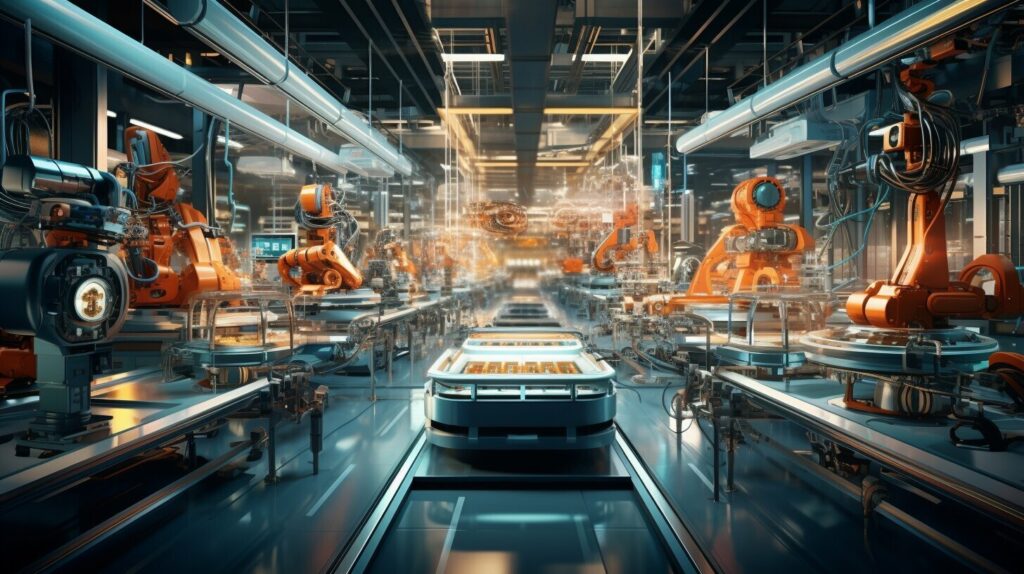
“Machine learning has emerged as a game changer for automation, enabling systems to learn from data and make intelligent decisions.”
As machine learning continues to advance, the potential applications in automation are limitless. Whether it’s optimizing supply chain processes, improving customer experiences, or enhancing product development, machine learning is set to revolutionize the way we approach automation in various industries.
The Rise of Robotic Automation
Robotic automation is rapidly transforming various industries, from manufacturing to healthcare. Integration with artificial intelligence has resulted in more advanced and intelligent robots, capable of carrying out complex tasks with precision and efficiency.
An example of this is the rise of collaborative robots, or cobots, which work alongside human workers to enhance productivity and safety. Cobots can perform repetitive or hazardous tasks, leaving the more creative and strategic work to humans. This collaboration between humans and robots is known as ‘co-botics.’
The use of robots in manufacturing has increased significantly, resulting in a more efficient production process and higher product quality. Additionally, robots are used in healthcare for tasks such as surgical procedures, patient monitoring, and drug administration. This has led to improved patient outcomes and reduced healthcare costs.
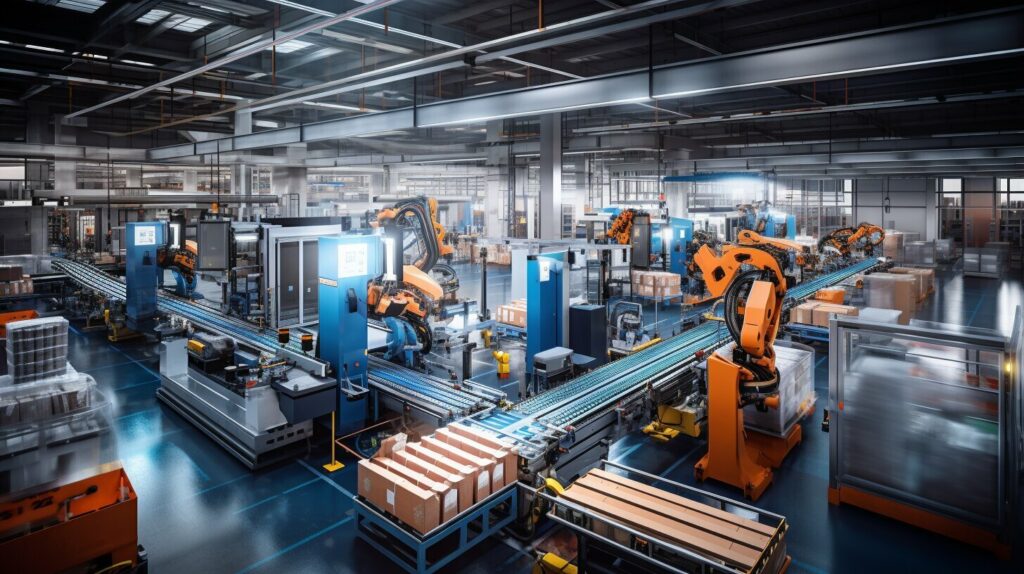
Furthermore, logistics and warehousing industries have adopted robotic automation for tasks such as picking and packing, inventory management, and transportation. This has resulted in increased efficiency, accuracy, and cost savings.
“Robotic automation is revolutionizing the way we work, creating new possibilities for efficiency, productivity, and safety.”
The Integration of AI and Robotics
The integration of AI and robotics has resulted in even more advanced robots with intelligent decision-making capabilities. For instance, robots in the aerospace industry can detect and predict defects in aircraft parts, while robots in the food industry can analyze and sort fruits and vegetables based on quality.
The future of robotic automation looks promising, with the potential for robots to become even more intelligent and autonomous. This could result in further efficiency gains and improved safety in various industries.
AI Applications in Various Industries
Artificial intelligence is changing the game for various industries, from healthcare to finance to retail. Let’s take a closer look at some of the real-world applications of AI:
| Industry | AI Application |
|---|---|
| Healthcare | Medical Diagnosis: AI algorithms can analyze medical images and scans to accurately diagnose illnesses and conditions. |
| Finance | Robo-advising: AI-powered financial advisors provide personalized investment advice to clients based on their financial goals and risk tolerance. |
| Retail | Personalized Marketing: AI algorithms analyze customer data to create personalized marketing campaigns and product recommendations. |
| Transportation | Autonomous Vehicles: AI-powered self-driving cars and trucks have the potential to revolutionize the transportation industry, improving safety and efficiency. |
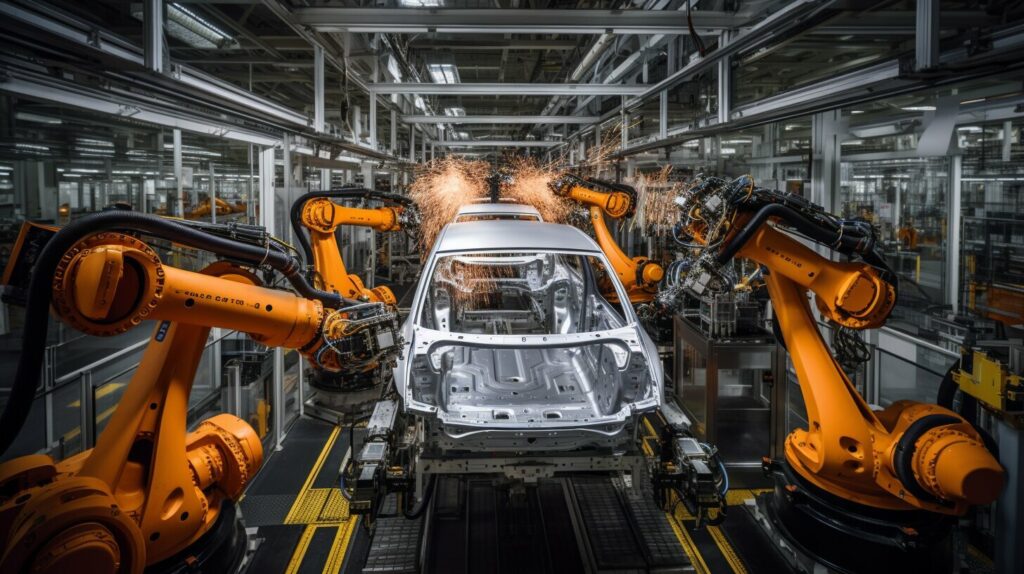
These are just a few examples of how AI is being used to drive innovation and transformation across industries. As AI technology continues to evolve, we can expect to see even more groundbreaking applications and use cases in the future.
The Power of Smart Automation
Automation has long been a key driver of efficiency and productivity in various industries. But with the advent of artificial intelligence, automation is becoming smarter and more powerful than ever before. Smart automation, also known as intelligent automation, is the integration of AI algorithms into traditional automation systems, resulting in faster and more accurate decision-making processes.
One of the key benefits of smart automation is its ability to learn and adapt to changing situations. By analyzing vast amounts of data, AI algorithms can identify patterns and make predictions, allowing automated systems to adjust and optimize their workflows in real-time. As a result, businesses can improve their overall efficiency, reduce costs, and provide better customer experiences.
Smart automation has enormous potential across a wide range of industries, from manufacturing and logistics to healthcare and finance. For example, in the manufacturing industry, smart automation can help to identify and solve production issues before they cause downtime or delays. In healthcare, it can help to improve patient outcomes by identifying patterns in patient data and recommending personalized treatment plans.
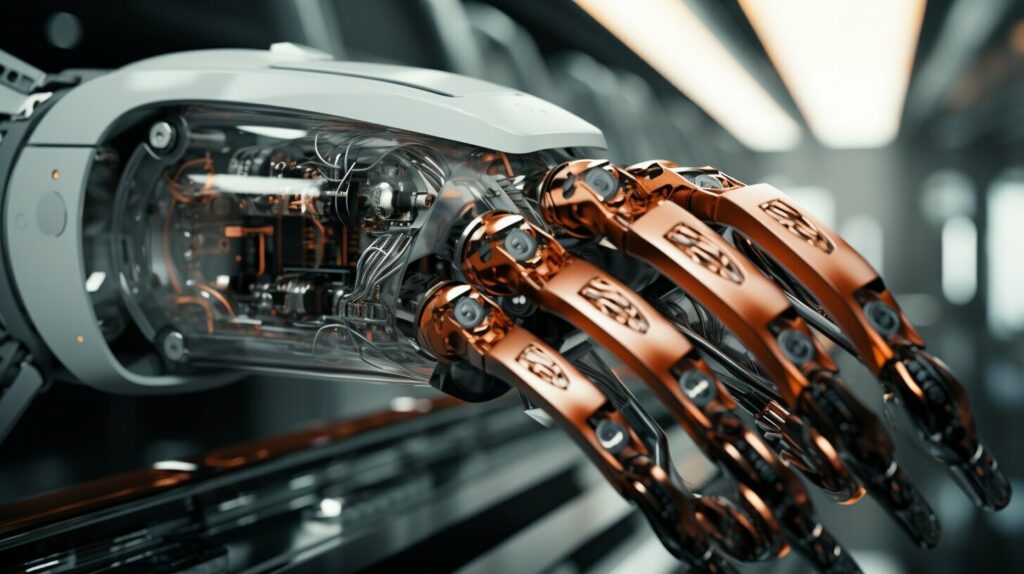
By leveraging the power of AI, smart automation offers businesses a way to stay competitive in an increasingly fast-paced and complex market. However, it’s important to note that implementing smart automation requires a significant investment in both time and resources. Businesses must be willing to train their employees to work alongside AI-powered systems, and they must be prepared to adapt their existing workflows to take advantage of the benefits that smart automation can offer.
The Benefits of Smart Automation
Some of the key benefits of smart automation include:
- Increased efficiency: With AI-powered automation systems, businesses can complete tasks more quickly and accurately than ever before.
- Reduced costs: By automating routine tasks, businesses can save time and money on labor costs.
- Better decision-making: Smart automation can provide real-time insights and recommendations, allowing businesses to make more informed decisions.
- Improved customer experiences: By automating routine tasks, businesses can free up their employees to focus on providing better customer service.
The Future of Smart Automation
The future of smart automation looks bright, with continued advancements in AI technology and automation processes. However, businesses must be willing to invest in these technologies and adapt their existing workflows to take advantage of the benefits they offer. By doing so, they can stay competitive and thrive in an increasingly complex and fast-paced market.
The Power of Smart Automation
Smart automation is the future of business operations. By combining AI algorithms with automation processes, organizations can unlock a whole new level of efficiency and productivity.
The benefits of smart automation are numerous. With AI-powered automation, businesses can optimize workflows, improve decision-making capabilities, and reduce costs. Additionally, automated systems can be trained to identify and respond to potential issues before they become major problems. By proactively addressing these issues, businesses can prevent downtime and keep operations running smoothly.
One example of smart automation in action can be found in the logistics industry. Using predictive analytics, automated systems can optimize shipping routes, reduce transit times, and minimize costs. This not only benefits the logistics provider but also boosts customer satisfaction by providing faster and more reliable shipping times.
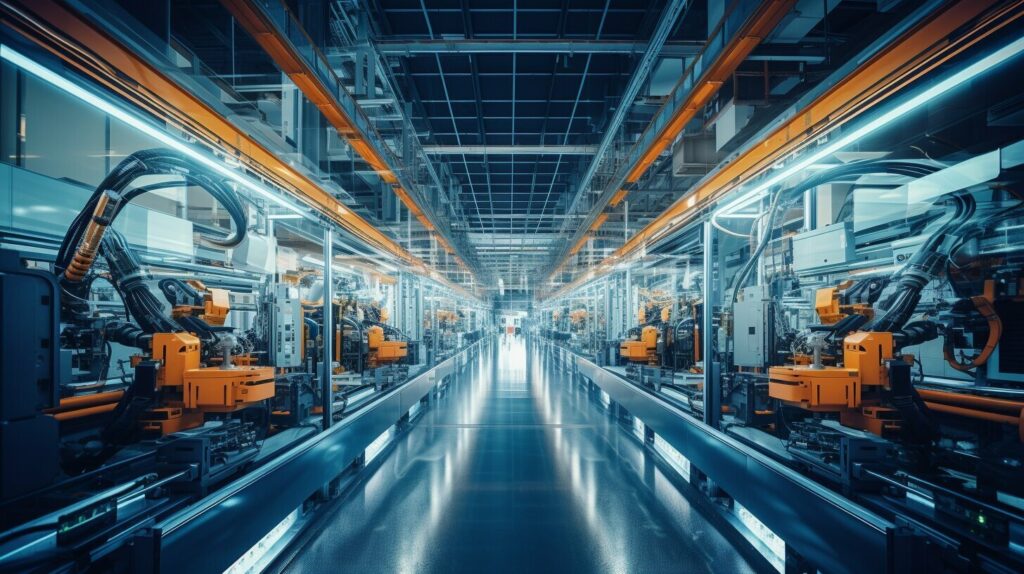
“Smart automation represents the next wave of innovation in business operations. By leveraging AI technologies, organizations can create more intelligent and adaptive systems that drive better outcomes for both the business and its customers.”
The Future of AI and Automation
The future of artificial intelligence and automation is both exciting and uncertain. As technology continues to advance at a rapid pace, new breakthroughs and trends are emerging, paving the way for a world that is increasingly automated and intelligent.
One of the most promising areas of innovation in this field is that of autonomous vehicles. Self-driving cars, trucks, and drones are already being tested and deployed in various parts of the world, offering the potential for increased safety, efficiency, and convenience. These vehicles rely on AI algorithms and sensors to make decisions and navigate their surroundings, representing a major step forward in the development of intelligent automation.
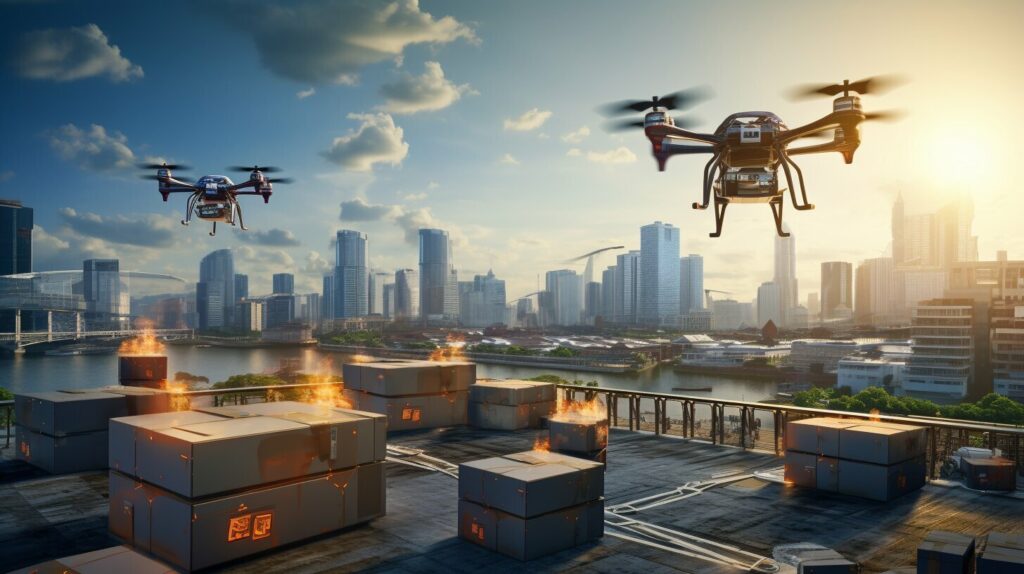
Another area of potential growth is that of virtual assistants. These AI-powered tools are already being used by millions of people every day, allowing them to perform tasks such as scheduling appointments, making phone calls, and sending messages with ease. As these technologies continue to improve, they are expected to become even more capable, offering new ways to streamline and simplify everyday life.
The Ethical Considerations of AI and Automation
While the possibilities of AI and automation are exciting, they also raise important ethical considerations. As these technologies become more sophisticated, there is a risk that they may be used to automate jobs and displace workers, leading to economic and social disruption.
There are also concerns related to data privacy and security. With so much personal information being collected and analyzed by these systems, there is a risk that this data could be misused or compromised. It is therefore important for developers, policymakers, and individuals to work together to ensure that these technologies are used in a responsible and ethical manner.
The Road Ahead
As we look to the future of AI and automation, it is clear that these technologies offer tremendous potential for transformative change. By embracing the possibilities that they offer, we can create a world that is more efficient, more productive, and more innovative than ever before.
However, it is important that we proceed with caution, taking into account the potential risks and ethical considerations. By doing so, we can ensure that these technologies are used in ways that are beneficial to all, creating a brighter future for generations to come.
Overcoming Barriers to Adoption
Despite the benefits of AI and automation, there are several barriers that prevent their widespread adoption. One of the biggest concerns is job displacement, as many fear that automation will replace human workers. While it’s true that some jobs may be automated, new job opportunities are also likely to emerge as a result of AI and automation.
Data privacy is another issue that must be addressed. With the increasing use of AI, there is a growing need to protect sensitive information and data. Companies must ensure that they are implementing appropriate security measures to safeguard against breaches and cyber attacks.
Finally, there is a need for upskilling the workforce to ensure that employees have the necessary skills to work alongside automated systems. This can be achieved through training programs and continuing education initiatives.
Overall, it’s important to recognize and address these barriers in order to fully realize the potential of AI and automation. By doing so, we can create a future where humans and intelligent machines work together to achieve new levels of productivity and innovation.

Navigating the AI and Automation Landscape
As artificial intelligence and automation continue to transform various industries, it’s becoming increasingly important for individuals and businesses to navigate the rapidly evolving landscape. Here are some practical tips to help you stay informed and make informed choices:
- Evaluate AI solutions: Before investing in any AI technology, do your research and evaluate the available options. Consider factors such as cost, functionality, and scalability.
- Implement automation strategies: Identify areas where automation can improve processes and increase efficiency. Start small and gradually scale up as needed.
- Stay updated with the latest trends: AI and automation are constantly evolving, so it’s important to stay informed. Follow industry experts and attend conferences and events to stay up-to-date.
By taking a proactive approach to navigating the AI and automation landscape, you can unlock the full potential of these transformative technologies.
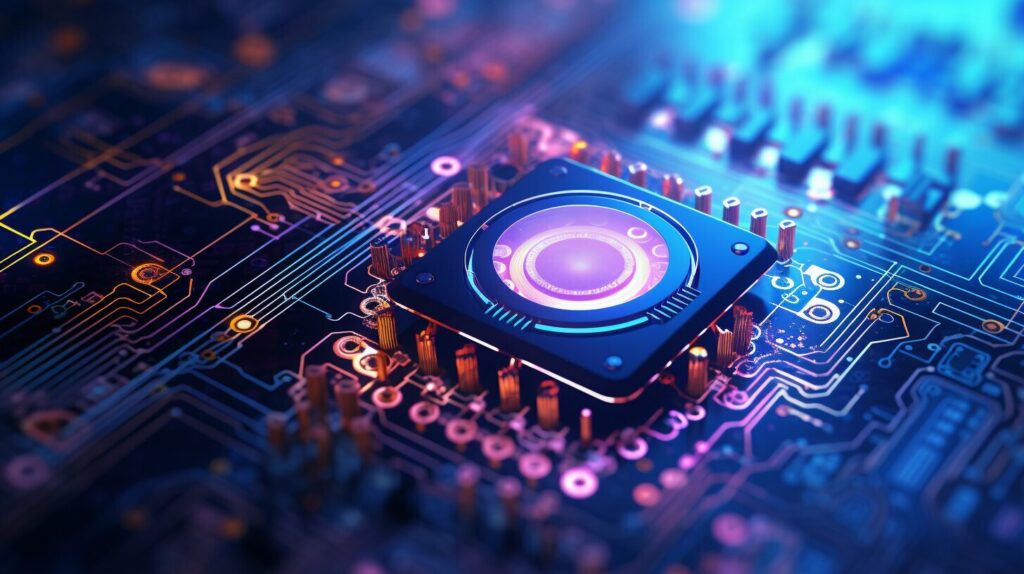
Conclusion
Artificial intelligence and automation technologies are rapidly transforming the way we live and work. From machine learning to robotic automation, these technologies are driving efficiency, productivity, and innovation across industries and sectors.
As we look to the future, it is clear that AI and automation will continue to play a critical role in shaping our world. From self-driving cars to virtual assistants, the possibilities of these technologies are endless. But with great power comes great responsibility. It is important that we navigate the challenges and ethical considerations surrounding these technologies with care and consideration.
By embracing the transformative power of AI and automation, we can unlock new levels of efficiency, productivity, and innovation. By overcoming barriers and staying informed and up-to-date, we can ensure that we are well-equipped to navigate the rapidly evolving landscape of these technologies.
Join the AI and Automation Revolution Today
Are you ready to join the AI and automation revolution? Whether you’re a business owner, an employee, or simply an interested reader, there are numerous ways to get involved and stay informed. From attending industry events to reading up on the latest trends, the key is to stay curious and engaged.
At the end of the day, the power of AI and automation is only limited by our own imagination. So let’s embrace the possibilities and create a world that is more efficient, productive, and innovative than ever before.
FAQ
Q: What is the importance of artificial intelligence and automation?
A: Artificial intelligence and automation have a significant impact on various industries. They improve efficiency, accuracy, and productivity, leading to cost savings and enhanced customer experiences.
Q: What is AI technology?
A: AI technology refers to the use of algorithms and automated systems that can perform tasks that typically require human intelligence. It encompasses machine learning, robotics, natural language processing, and more.
Q: How does machine learning contribute to automation?
A: Machine learning plays a crucial role in automation by enabling systems to learn from data and improve their performance over time. It enhances the accuracy and efficiency of automated processes across industries.
Q: What is robotic automation?
A: Robotic automation involves the use of intelligent robots that can perform tasks autonomously. It combines robotics technology with AI, resulting in more sophisticated and capable robots that can be deployed in various industries.
Q: What are some real-world applications of AI in different industries?
A: AI is being applied in healthcare for diagnosis and treatment, in finance for fraud detection, in retail for personalized shopping experiences, and in transportation for autonomous vehicles, among many other areas.
Q: What is smart automation?
A: Smart automation refers to the integration of AI capabilities into traditional automation systems. It combines the efficiency and reliability of automation with the decision-making capabilities of AI algorithms, resulting in enhanced productivity and operational efficiency.
Q: What is intelligent automation?
A: Intelligent automation leverages AI technologies to create adaptive and intelligent systems. It uses predictive analytics, optimized workflows, and AI-powered decision-making to improve efficiency, customer experiences, and overall performance.
Q: What does the future hold for AI and automation?
A: The future of AI and automation looks promising. Emerging trends include autonomous vehicles, virtual assistants, and smart cities. However, there are also challenges and ethical considerations that need to be addressed.
Q: What are the common barriers to adopting AI and automation?
A: Barriers include concerns about job displacement, data privacy, and the need to upskill the workforce. Overcoming these barriers requires proactive strategies and solutions to ensure the widespread adoption of AI and automation.
Q: How can individuals and businesses navigate the AI and automation landscape?
A: Practical guidance includes evaluating AI solutions, implementing automation strategies, and staying updated with the latest trends. This knowledge empowers individuals and businesses to make informed decisions in the rapidly evolving AI and automation landscape.

